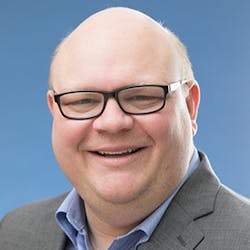We need a new CDT code for infection control fees
Op/Ed
There is no doubt that we are all feeling pain with the current COVID-19 crisis. We face many challenges: changing regulatory requirements, mandated office closures, shortages of personal protective equipment (PPE) for us and our staff, fear of treating patients for emergencies after dentistry was labeled the riskiest group for occupational hazards, and more. All of these issues can be overcome as we want to be there for our patients, and as dental health-care professionals, we have an inherent desire to help others. We do what we must.
We have much financial uncertainty with the coronavirus pandemic that was thrust upon us overnight. In the dental profession, we have been practicing with universal precautions for years, ever since AIDS presented itself in the early 1980s. Today, we have to practice wearing surgical gowns, face shields, surgical caps, and booties—all while wearing a N95 or better mask for all aerosol-generating procedures—that is, if you can find a mask. Procurement of these items is the Wild West at the moment. What supply houses have PPE items in stock that are not backordered?
What else is coming? Negative pressure rooms? If that is the case, dentistry will be relegated to hospitals. I don’t think we will actually reach this point, but we cannot throw efficiency out the window putting further pressure on our businesses. Will it be mandated or best practice to have medical-grade HEPA filters, UV light sterilization between patients, and extraoral evacuation units in addition to the intraoral high-speed evacuation we currently use? I have talked with many dental providers over the past few weeks. The consensus is that we all want to offer these luxuries for safety and the confidence of our patients and staff members, but it comes with a cost.
Many of us have had little to no income for the past month. Will this crisis last another month or two? And if so, what capital or credit will we have to be able to pay for these new infection control measures? In pricing out infection control items for my own office, the cost came to approximately $8,000–$10,000 per operatory depending on the square footage of the office.
We will need to be able to share these costs with our patients and third-party insurance payors. We need a new CDT code to bill for infection control fees.
There is not a better time than now for insurance payors and dental providers to come together and support each other. Payors are successful when they have a good network for their members and can be confident that the health care provided to patients meets or exceeds their expectations. Dentists are successful when they have a strong patient base, are able to provide the safest care, and are reimbursed in a timely manner. It is a symbiotic relationship.
Dental providers must be given the freedom to mitigate infection control costs by billing for additional expenses, just as every other business in the world does for its consumers. We need support; otherwise, many dental practices will experience difficulty coming out of this hole that they didn’t put themselves in. What would a network look like with fewer dental providers?
One thing is for sure—we are in this together.
Editor’s note: This article originally appeared in Perio-Implant Advisory, a newsletter for dentists and hygienists that focuses on periodontal- and implant-related issues. Perio-Implant Advisory is part of the Dental Economics and DentistryIQ network. To read more articles, visit perioimplantadvisory.com, or to subscribe, visit dentistryiq.com/subscribe.
About the Author
Michael A. Scialabba, DDS
Michael A. Scialabba, DDS, is currently the vice president of clinical affairs of 42 North Dental, a dental service organization serving 76 multispecialty group practices across New England and New York. He is a 2003 graduate of SUNY Stony Brook Dental School and a finance graduate of the Boston College Carroll School of Management. In 2016, he graduated from the American Dental Association Certificate Program in dental practice management at the Mendoza College of Business, University of Notre Dame. Dr. Scialabba is an appointed member of the Massachusetts Board of Registration in Dentistry and a member of the Commission on Dental Competency Assessments. He practices on a limited basis at Great Hill Dental Partners Peabody, where he was a founding partner and CEO prior to affiliating with 42 North Dental in 2017.


